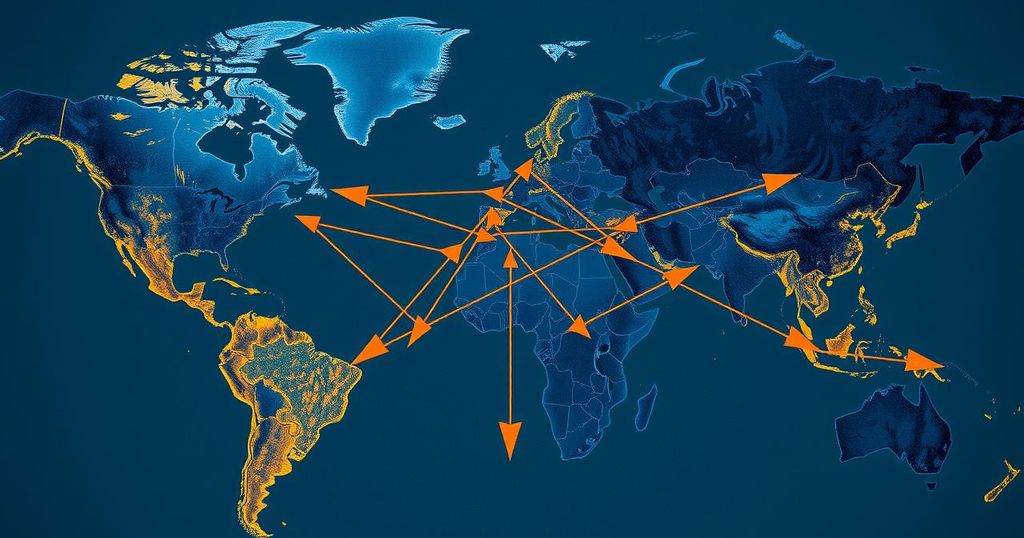Elections
Politics
AE, ASIA, BUKELE, CUBA, DEMOCRACY, DIANA YATES, EL SALVADOR, HUMAN RIGHTS, JUDICIARY, LIFE SCIENCES, MARCO RUBIO, NATIONAL SECURITY, NAY, NEWS BUREAU, NORTH AMERICA, PEARL HARBOR, PHILIPPINES, POLITICS, SOUTH AMERICA, TREN DE ARAGUA, TRUMP, U. S, UNITED STATES, VENEZUELA
Dante Raeburn
The Controversial Deportation of Venezuelan Immigrants to El Salvador
Over 200 Venezuelan immigrants were deported to El Salvador due to allegations of gang activity, invoking the Alien Enemies Act. Salvadoran President Nayib Bukele offered to detain these individuals using his infamous prison system. Concerns arise over their legal rights, treatment in detention, and the ongoing implications for U.S.-El Salvador relations.
On March 15, more than 200 Venezuelan immigrants were deported from the United States to El Salvador after being accused of gang involvement. This controversial decision stemmed from the U.S. government’s response to what it characterized as an invasion of the country by the Venezuelan gang Tren de Aragua. The use of the Alien Enemies Act allowed for the deportation without a Congressional war declaration, marking a rare implementation of this 1798 law initiated by President Donald Trump.
The deportation of Venezuelan immigrants to El Salvador raises significant concerns regarding human rights and legal processes. The detention conditions in El Salvador, coupled with the lack of judicial oversight and the U.S. government’s justification for the deportations, highlight complex issues of governance, international relations, and humanitarian rights. The situation continues to evolve as the legal and social ramifications unfold.
Original Source: news.illinois.edu








Post Comment